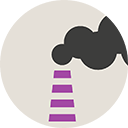Kuala Lumpur Kepong Bhd
Palm oil assessment- Latest update: November 2024
- Next scheduled: November 2025
-
Parent company:Batu Kawan Bhd
-
Landbank (oil palm)358,919 hectares
-
Market cap:5,461,700,000 USD
-
Thomson Reuters ticker:KLKK.KL
-
Bloomberg ticker:KLK MK Equity
-
Sedol:6497446
-
LEI:No LEI
-
RSPO member?Yes
-
Website:
Company assessment: Kuala Lumpur Kepong Bhd – October 2016
Assessment date:
SPOTT scores are based on the presence of external evidence made available by the company or third-parties.
Media monitor: Kuala Lumpur Kepong Bhd
SPOTT monitors global media sources for coverage of assessed companies. The media monitor gathers reports about specific activities related to the assessment indicator categories. ZSL does not assess or score the validity of media coverage, but users can explore the media monitor to provide context on implementation, and infer risks associated with reported operations on the ground. The media monitor undergoes a full update at the time of publishing an assessment round, with ad-hoc updates throughout the year. This is not an exhaustive list of all media reports relevant to the company.
February 2025
317.253 Hektare Izin Kebun Sawit dalam Kawasan Hutan Ditolak Kemenhut (317,253 Hectares of Oil Palm Plantation Permits in Forest Areas Rejected by Ministry of Forestry)
February 2025
16 Perusahaan Tak Miliki HGU di Kotim Harus Segera Ditindak (16 Companies Without HGU in Kotim Must Be Prosecuted Immediately)
October 2024
Bongkar Mafia Pemutihan Kebun Sawit di Kawasan Hutan Lindung (Uncovering the Palm Oil Plantation Whitening Mafia in Protected Forest Areas)
June 2024
Laporan Terbaru Ungkap Dugaan Pelanggaran di Perusahaan Sawit Astra (Latest Report Reveals Alleged Violations at Astra Palm Oil Company)
April 2024
Allegations of unethical recruitment practices by SOS Manpower Services SubAgents
April 2021
The Chain: Selangor State Agricultural Development Corporation Peat Clearing Risks Access to FMCG and Trader/Refiner Supply Chains
March 2021
Liberia: Farmers Demand ‘Balance’ Payment In Land Deal with Equatorial Palm Oil in Grand Bassa County
December 2020
Lack of funds in Liberia hampers legal enforcement of rural land rights
October 2020
Nasib keluarga Ladang Kerilla bagai telur di hujung tanduk (The fate of the Kerilla Farm family is like an egg at the end of a horn)
September 2020
Update: United Malacca's 60,000-Hectare Industrial Tree Plantation Development Risks Market Access, Raises Questions About Scope of NDPE Policy Implementation
September 2020
The Chain: Sarawak State Government to Purchase TH Plantations' Sarawak Concessions, but NDPE Supply Chain Not Guaranteed
April 2020
The Chain: Tabung Haji Plantations to Develop New Oil Palm Concession, Once Again Breaching Buyers’ NDPE Commitments
September 2019
FoEA Solidarity visit and message to Joegbahn Clan Community in Liberia
September 2019
KLK confirms fires on estate; vows to cooperate with Indonesian authorities
15
7
37
5
2
13
31
Media monitor: Kuala Lumpur Kepong Bhd
SPOTT monitors global media sources for coverage of assessed companies. The media monitor gathers reports about specific activities related to the assessment indicator categories. ZSL does not assess or score the validity of media coverage, but users can explore the media monitor to provide context on implementation, and infer risks associated with reported operations on the ground.







